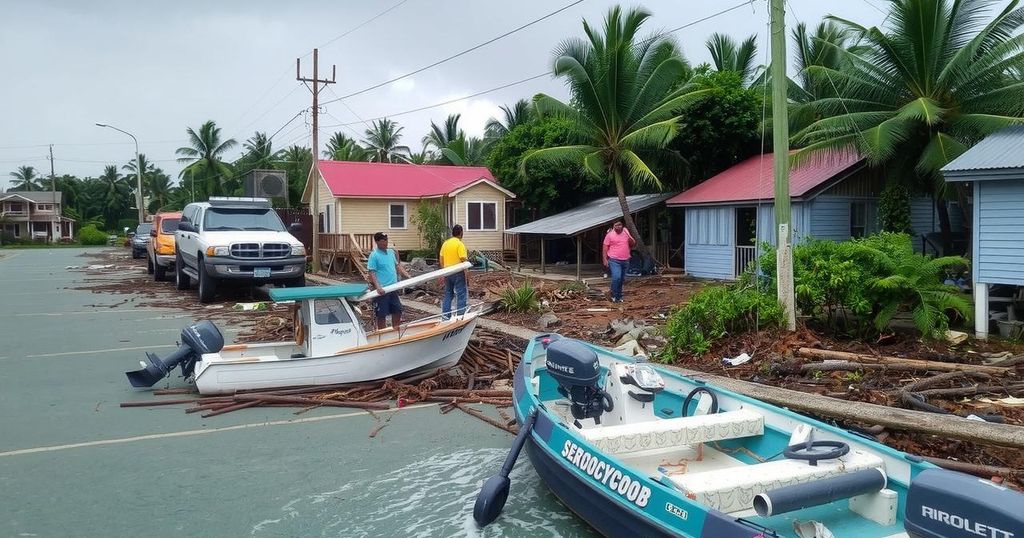Tropical Storm Dikeledi Compounds Mayotte’s Challenges Post-Cyclone Chido

Tropical Storm Dikeledi has struck Mayotte, compounding the archipelago’s struggles to recover from Cyclone Chido’s devastation in December 2024. The storm has prompted a red alert, leading to emergency measures as local authorities and aid organizations attempt to provide relief. The ongoing situation raises concerns about the effects of climate change on vulnerable regions, necessitating immediate attention and cooperative efforts for more effective disaster management.
On January 13, 2025, Tropical Storm Dikeledi struck the French archipelago of Mayotte, intensifying the region’s difficulty in recovering from the devastating effects of Cyclone Chido, which occurred in December 2024. Mayotte remains vulnerable to natural disasters, and the latest storm has prompted a red alert as heavy rains and strong winds lead to significant disruption for residents. The government’s emergency response includes urging citizens to gather supplies and seek shelter as local officials and aid organizations work to provide necessary relief.
Following Cyclone Chido, which was the most severe storm in nearly a century, the island faced numerous challenges including power outages and widespread property damage. With up to 39 fatalities and approximately 200 individuals reported missing, the community was just beginning to rebuild when Tropical Storm Dikeledi arrived, leading to urgent concerns about flooding, infrastructure damage, and the sustainability of recovery efforts. Officials indicate that international assistance is critical for effective recovery, but logistical challenges due to Mayotte’s geographic isolation complicate relief efforts.
The frequency of such storms raises alarms regarding climate change’s impact on vulnerable small island territories like Mayotte. The recent events highlight an urgent need for a comprehensive disaster management strategy that accounts for both immediate recovery and long-term resiliency. Additionally, socio-economic difficulties faced by the region, including high unemployment rates and limited healthcare infrastructure, exacerbate the repercussions of such disasters, posing further challenges for the local population.
As the archipelago endures another crisis, coordinated efforts among local authorities, international bodies, and the Mayotte community may facilitate recovery. Strengthening climate resilience through global cooperation and increased resources will be essential to address the unique challenges faced by this territory and others like it. The situation demands immediate attention to ensure that the people of Mayotte can rebuild not only their homes but also their futures.
Mayotte is a French overseas territory characterized by its picturesque beauty and susceptibility to tropical storms. Historically, the region has faced severe weather events which expose its poor infrastructure and disaster preparedness. With a population grappling with socio-economic challenges, the impact of recent natural disasters such as Cyclone Chido—deemed the worst storm in a century—emphasizes the need for a strategic approach to disaster management and recovery. The socio-economic context aggravates the aftermath of storms, calling for local and international collaboration to improve resilience and support recovery efforts.
In summary, Tropical Storm Dikeledi has significantly impacted Mayotte, complicating recovery efforts from the devastation caused by Cyclone Chido. The situation underscores the urgent need for a robust disaster management strategy, enhanced international assistance, and sustainable development initiatives to support the vulnerable population of Mayotte. By improving infrastructure and preparing for natural disasters, the community may secure a more resilient future against climate change’s increasing threats.
Original Source: www.travelandtourworld.com






